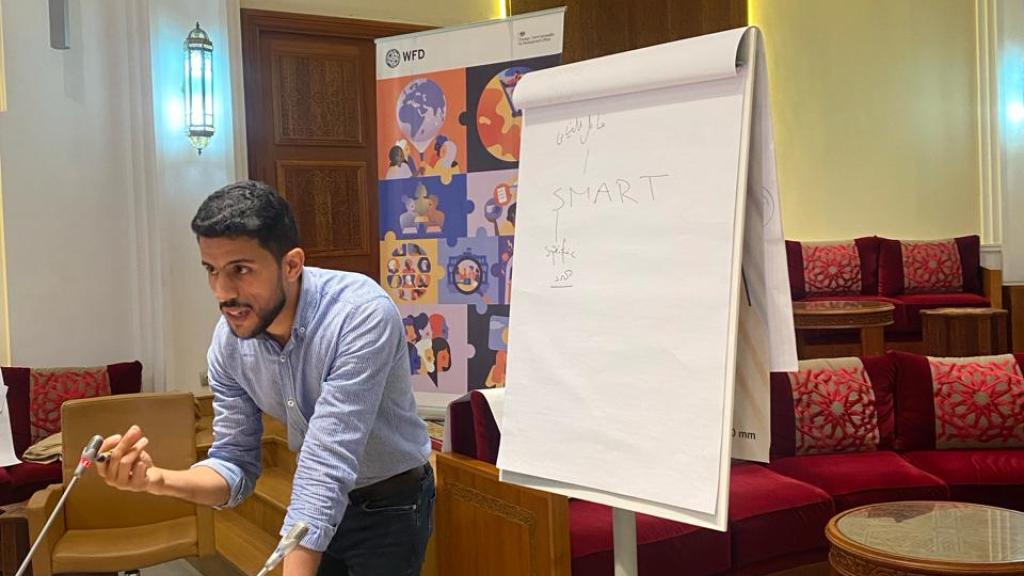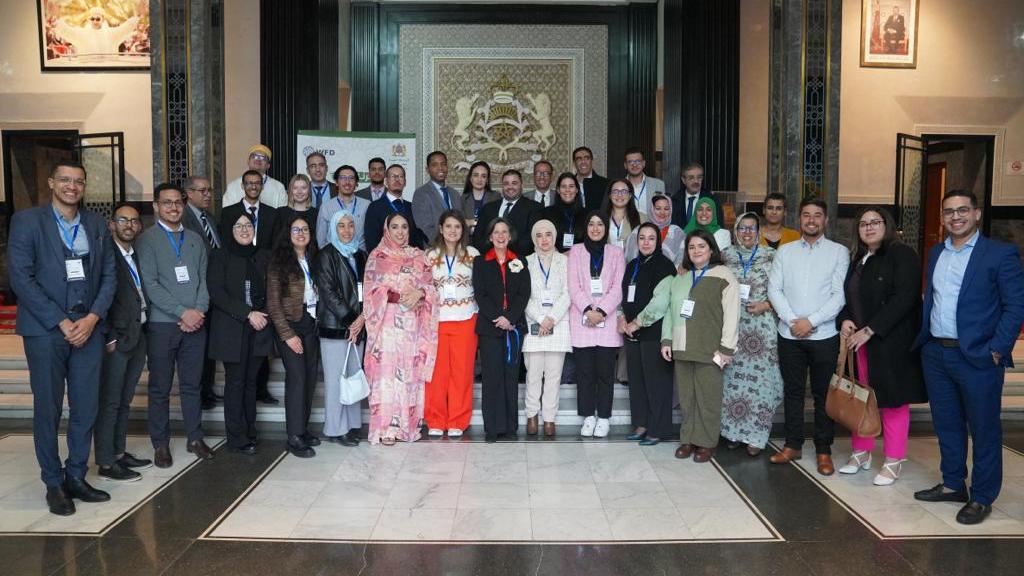WFD launches Environmental Democracy project in Morocco
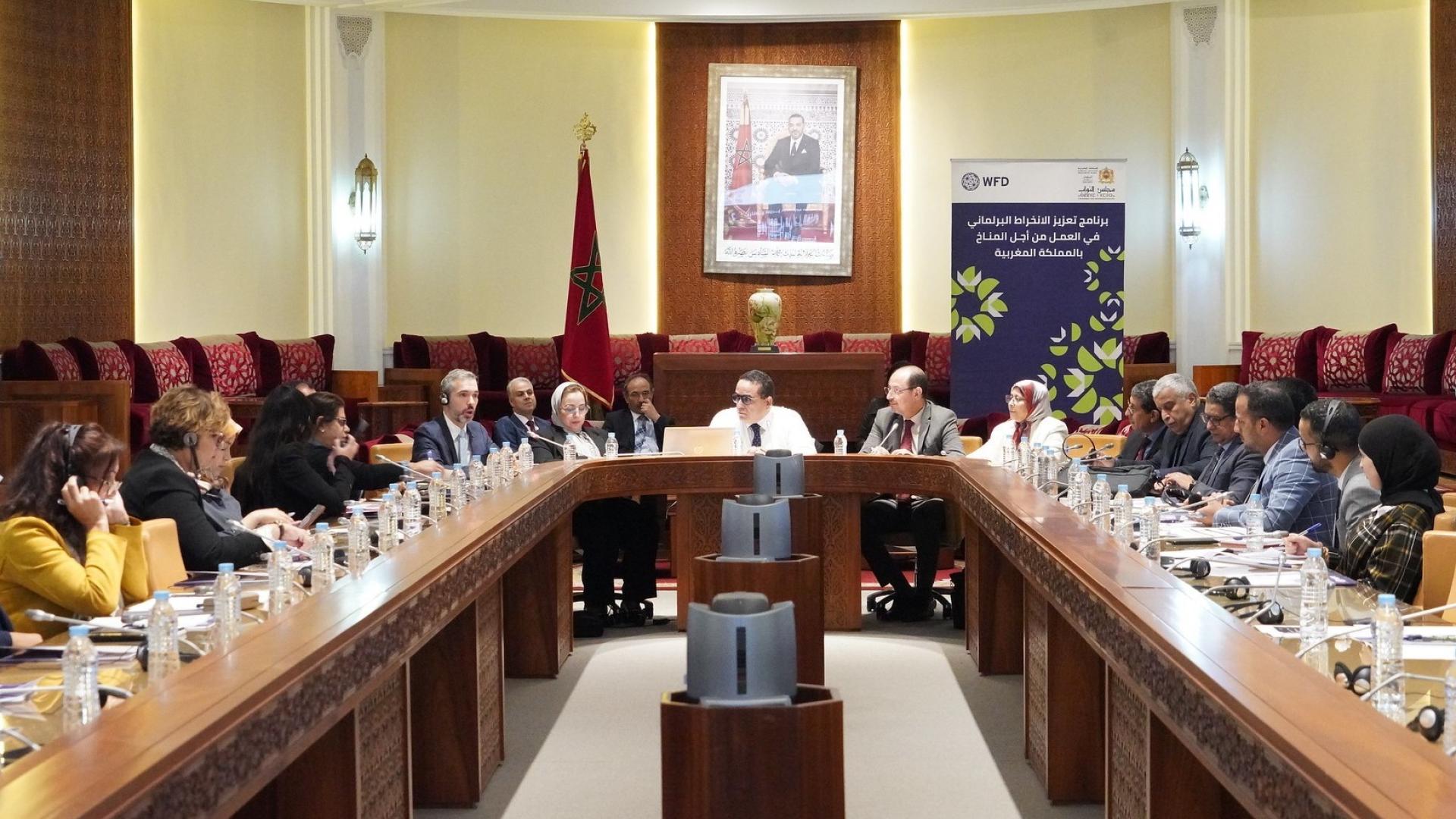
Westminster Foundation for Democracy (WFD), in partnership with the House of Representatives (HoR), recently hosted a workshop on climate change in Morocco. This event marked the successful launch of the new Environmental Democracy (ED) programme, aimed at enhancing parliamentary engagement in climate action.
The study day featured three sessions aimed at equipping Moroccan parliamentarians with a well-rounded understanding of climate action priorities in public policy and enhancing their ability to engage constructively with government officials responsible for climate action planning and cross-departmental coordination, including the drafting of the second Nationally Determined Contribution (NDC), due in February 2025.
The purpose of this inaugural meeting was to introduce the themes and climate-related issues that the programme will address, while also strengthening the bonds of collaboration with the HoR’s members and staff. The workshop, chaired by Hicham El Haid MP, Chairperson of the Adhoc Thematic Working Group on Energy Transition, provided an opportunity to share information and exchange views on the priorities of climate action and ways to implement them within public policies, particularly those aimed at combating climate change.
“WFD believes that strengthening democracy is essential to addressing global challenges, including climate change. Today, we are here to support the Moroccan Parliament in its vital role as a bridge between government and society in formulating comprehensive and integrated climate action policies.” Fatiha Ait Oulaid, Country Director, WFD.
Choosing to work alongside parliamentarians and HoR staff reflects the programme's strong belief in parliament's crucial role in tackling climate issues. In addition to Rafael Jiménez Aybar, WFD’s Environmental Democracy Adviser, a national expert, and representatives from the Economic, Social and Environmental Council (CESE) and the Ministry of Energy Transition and Sustainable Development contributed to the insightful discussions with their expertise, experience, and possible solutions to climate change and its environmental impacts.
“The Paris Agreement does not give a role to national parliaments, and yet their full engagement is a critical condition for ambitious, socially just and science-informed climate action to happen, because they pass budgets, legislate, oversee government progress and, above all, represent the people. WFD salutes the Moroccan Parliament's leadership as one of the parliaments around the world that take their climate action responsibilities seriously.” Rafael Jiménez Aybar, Environmental Democracy Practice Lead, WFD.
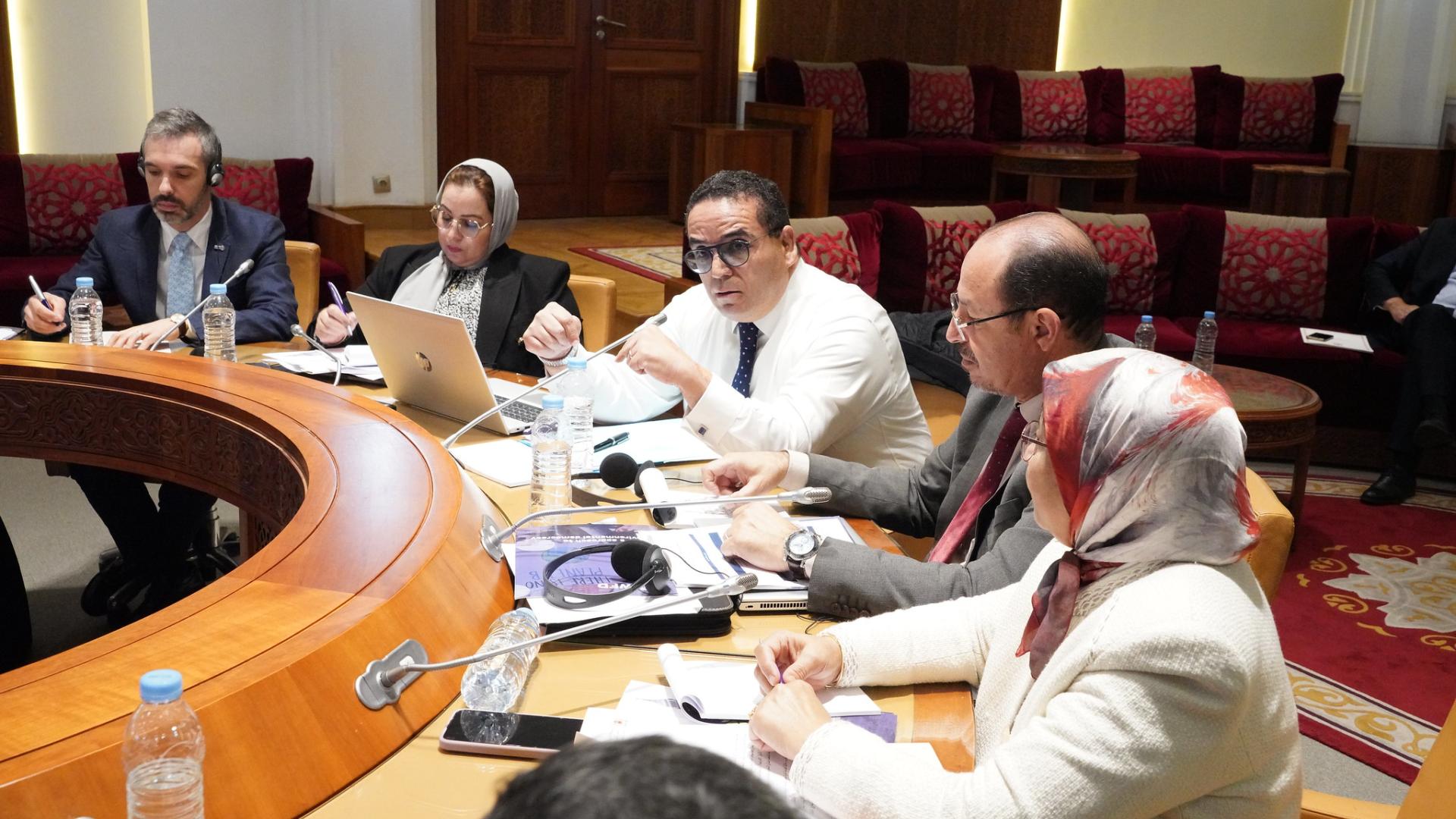
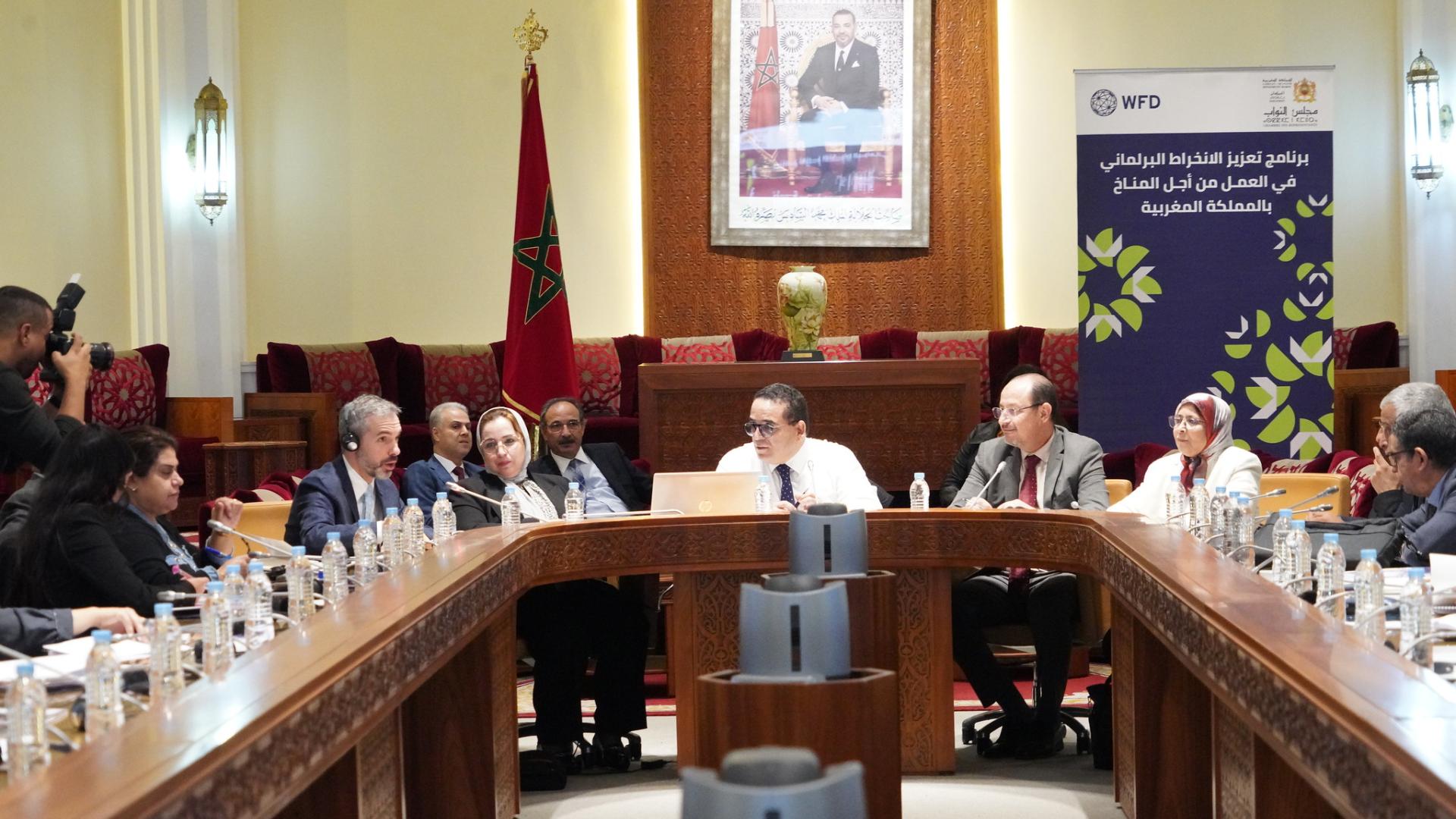
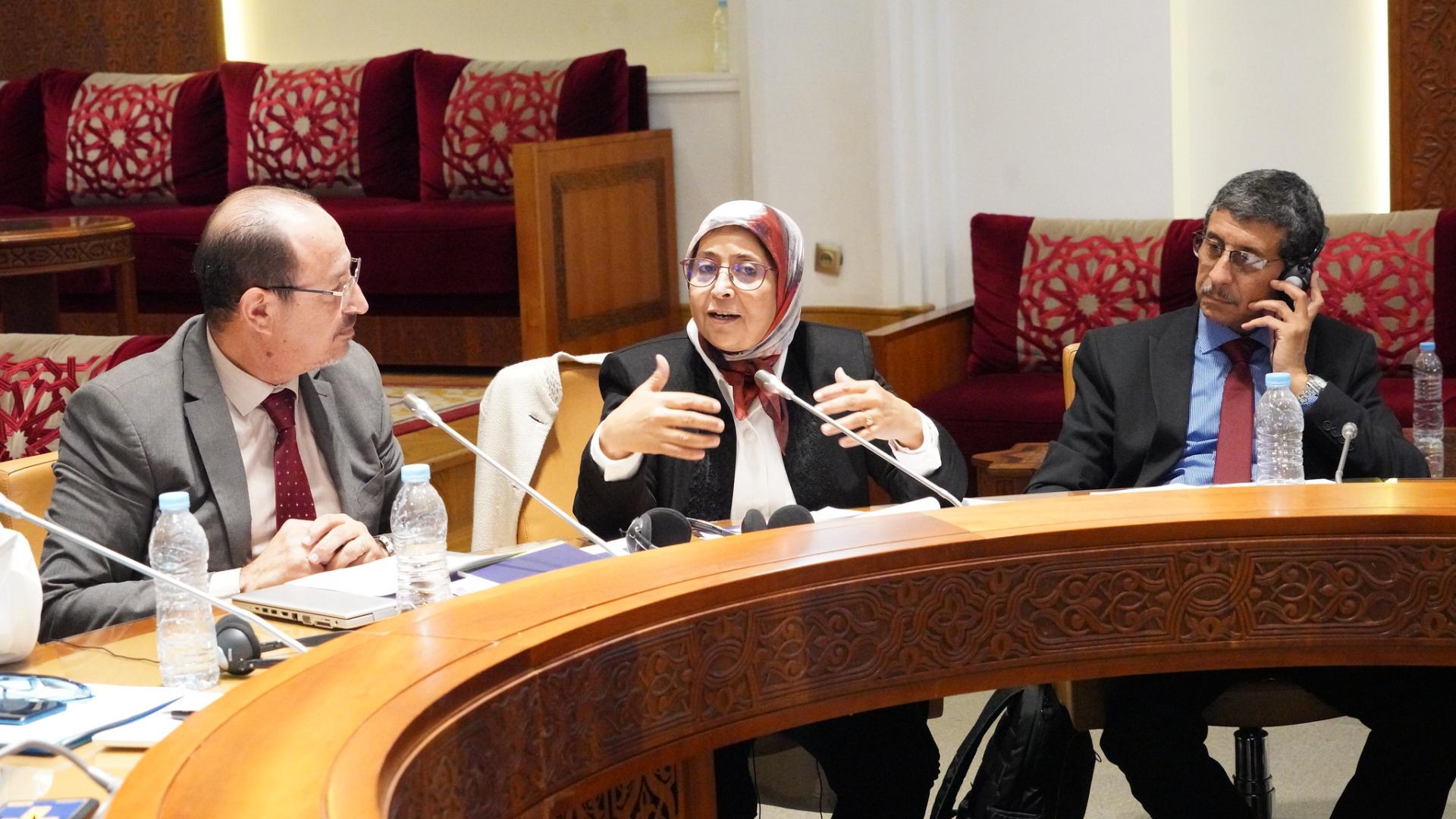
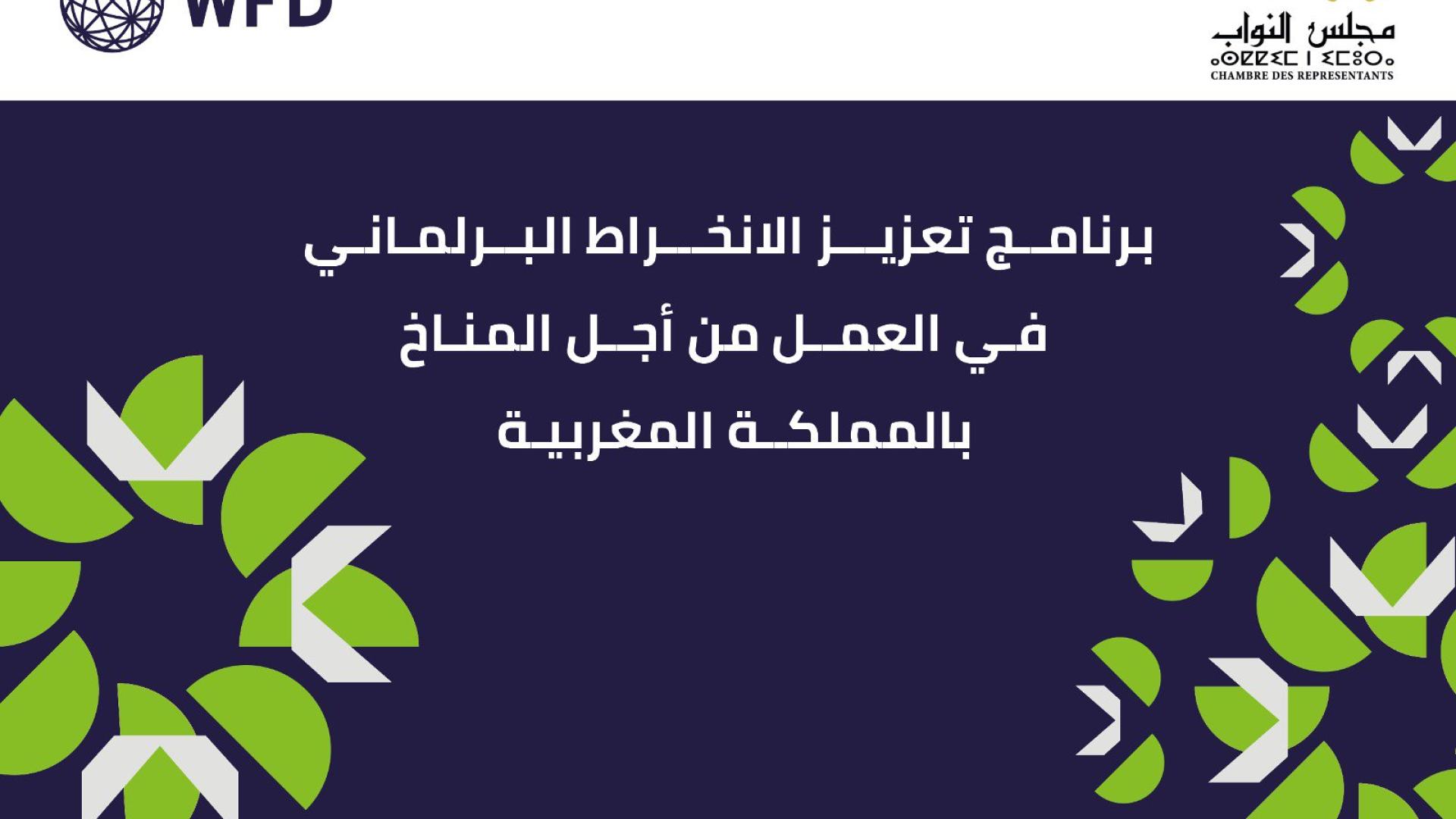
After the presentations, the participants engaged with the interventions, enriching the discussion on this increasingly pressing topic. They appreciated the choice of the HoR as the venue, recognising Parliaments's role in formulating and tracking appropriate responses. Participants also explored key aspects of societal responses to climate change, noting the general lack of understanding about its causes and adaptation methods. Many citizens only recognise the challenges of climate change when faced with water scarcity. Additional observations included:
- The necessity of not only implementing measures but also tracking their feasibility and suitability for the target situation.
- The importance of considering Morocco's specific context when drawing on international experiences.
- The need to raise awareness across all segments of society about the effects of climate change and ways to collectively mitigate its impact.
- The significance of reducing food and water waste as part of addressing climate change.
- The need for coordination among the various stakeholders involved in strategies and plans.
- The importance of compiling environmental and climate-related laws for easy access and tracking.
The Moroccan parliament is setting a strong example in addressing climate challenges. WFD is proud to partner with the HoR to build the strong, inclusive democratic social contract that is required to make ambitious climate action a reality.


